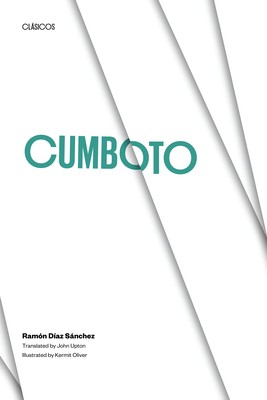
- We will send in 10–14 business days.
- Author: Ramón DÃaz Sánchez
- Publisher: University of Texas Press
- ISBN-10: 0292740743
- ISBN-13: 9780292740747
- Format: 15.2 x 22.9 x 1.6 cm, softcover
- Language: English
- SAVE -10% with code: EXTRA
Reviews
Description
This richly orchestrated novel, which won a national literary prize in the author's native land, Venezuela, also earned international recognition when the William Faulkner Foundation gave it an award as the most notable novel published in Ibero America between 1945 and 1962. Cumboto's disturbing story unfolds during the early decades of the twentieth century on a Venezuelan coconut plantation, in a turbulent Faulknerian double world of black and white. It records the lives of Don Federico, the effete survivor of a once vigorous family of landowners, and his Negro servant Natividad, who since the days of their mutual childhood has been his only friend. Young Federico, psychologically impotent and lost to human contact, lives on as a lonely recluse in the century-old main house of Cumboto, surrounded by descendants of African slaves who still manage, despite his apathy, to keep the plantation on its feet. Natividad's heroic and selfless struggle to redeem his friend by awakening him to the stirrings of the earth and life about him sets in motion a series of events that are to shatter Federico's childlike world: a headlong love affair with a voluptuous black girl, her terrified flight in the face of the bitter condemnation of her own people, and the unexpected appearance, twenty years later, of their extraordinary son. Throughout the novel runs a recurring theme: neither race can survive without the other. Black and white, DÃaz Sánchezz suggests, embody contrasting aspects of human nature, which are not inimical but complementary: the languid intellectualism of European culture must be tempered with the indestructible vitality and intuition of the African soul if humanity is ever fully to comprehend the living essence of the world.
EXTRA 10 % discount with code: EXTRA
The promotion ends in 8d.05:33:49
The discount code is valid when purchasing from 10 €. Discounts do not stack.
- Author: Ramón DÃaz Sánchez
- Publisher: University of Texas Press
- ISBN-10: 0292740743
- ISBN-13: 9780292740747
- Format: 15.2 x 22.9 x 1.6 cm, softcover
- Language: English English
This richly orchestrated novel, which won a national literary prize in the author's native land, Venezuela, also earned international recognition when the William Faulkner Foundation gave it an award as the most notable novel published in Ibero America between 1945 and 1962. Cumboto's disturbing story unfolds during the early decades of the twentieth century on a Venezuelan coconut plantation, in a turbulent Faulknerian double world of black and white. It records the lives of Don Federico, the effete survivor of a once vigorous family of landowners, and his Negro servant Natividad, who since the days of their mutual childhood has been his only friend. Young Federico, psychologically impotent and lost to human contact, lives on as a lonely recluse in the century-old main house of Cumboto, surrounded by descendants of African slaves who still manage, despite his apathy, to keep the plantation on its feet. Natividad's heroic and selfless struggle to redeem his friend by awakening him to the stirrings of the earth and life about him sets in motion a series of events that are to shatter Federico's childlike world: a headlong love affair with a voluptuous black girl, her terrified flight in the face of the bitter condemnation of her own people, and the unexpected appearance, twenty years later, of their extraordinary son. Throughout the novel runs a recurring theme: neither race can survive without the other. Black and white, DÃaz Sánchezz suggests, embody contrasting aspects of human nature, which are not inimical but complementary: the languid intellectualism of European culture must be tempered with the indestructible vitality and intuition of the African soul if humanity is ever fully to comprehend the living essence of the world.


Reviews